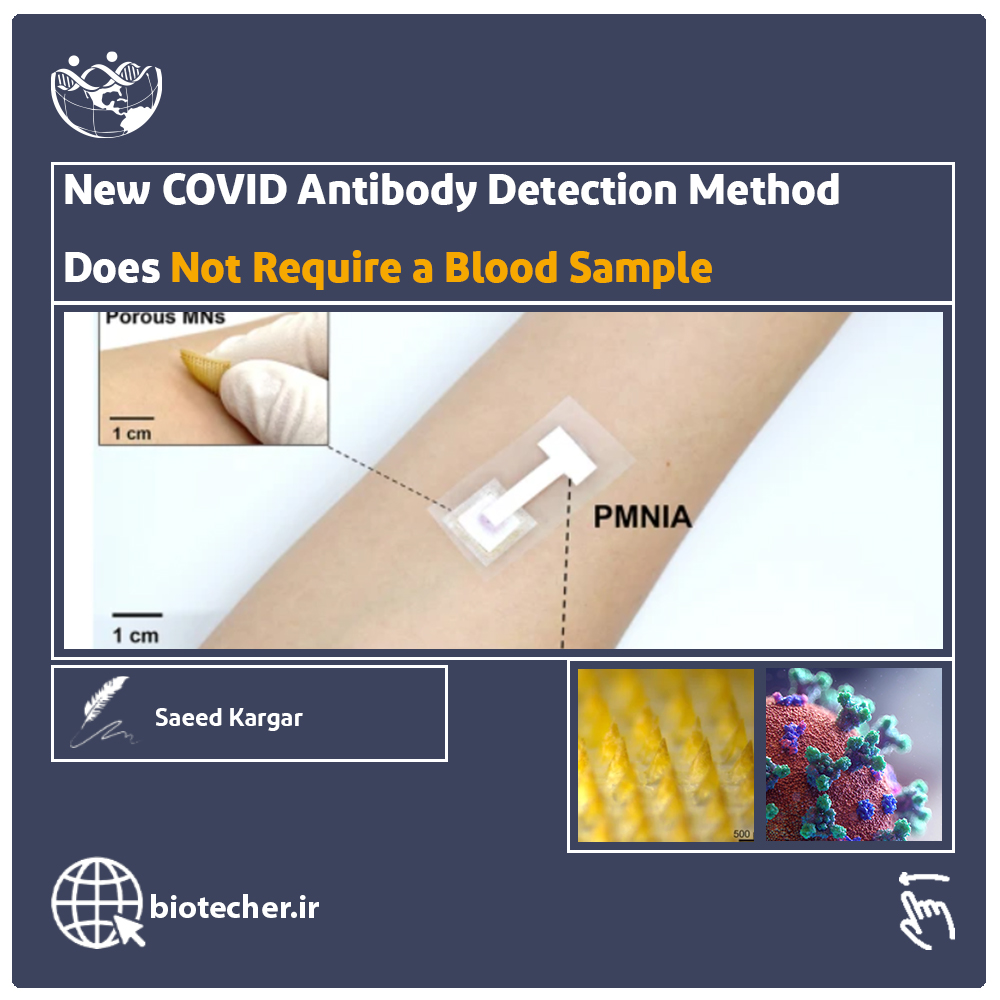
محققین ژاپنی دانشگاه توکیو تکنیک جدیدی برای تشخیص سریع آنتی بادی کرونا توسعه دادند که دیگر نیازی به نمونه خون نیست!
با وجود تولید واکسن علیه کرونا هنوز این ویروس به پایان نرسیده است. یکی از روش های غالب تشخیص این ویروس تهیه نمونه از بینی و گلو است که این روش تشخیص بین 4 تا 6 ساعت طول می کشد و به تجهیزات ویژه ای نیاز دارد و پر هزینه است.
روش جایگزین و مکمل برای تشخیص آلودگی ویروس کرونا تشخیص اختصاصی آنتی بادی این ویروس است. در این تکنیک از نوارهای تستی دارای نانوذرات طلا استفاده می شود و الان در بسیاری از کشورها رایج است. این تست به 10 تا 20 دقیقه زمان نیاز دارد اما نیاز به نمونه خون است که از انگشت فرد گرفته می شود.
تحقیقات نشان می دهد مایع بین سلولی 15 تا 25 درصد آنتی بادی خون را دارد و یک منبع خوب برای تشخیص آنتی بادی کووید است. محققین پج فشرده ای ساختن که بر روی پوست قرار می گیرد و در مدت تنها 3 دقیقه این آنتی بادی را شناسایی می کند.

New COVID Antibody Detection Method Does Not Require a Blood Sample
The global response to the COVID-19 pandemic has been severely limited by the ineffective identification of SARS-CoV-2-infected individuals, and the high rate of asymptomatic infections (16%–38%) has exacerbated this situation. Thus far, the predominant detection method collects samples by swabbing the nose and throat. However, the application of this method has been limited by its long detection time (4–6 hours), high cost, and requirement for specialized equipment and medical personnel, particularly in resource-limited countries.
An alternative and complementary method for confirming COVID-19 infection involves the detection of SARS-CoV-2-specific antibodies. Testing strips based on gold nanoparticles are currently in widespread use for point-of-care testing in many countries. They produce sensitive and reliable results within just 10–20 minutes, but they require blood samples collected via a finger prick using a lancing device. This can be painful and increases the risk of infection or cross-contamination. Plus, the used kit components present a potential biohazard risk.
The University of Tokyo, explains: “To develop a minimally invasive detection assay that would avoid these drawbacks, we explored the idea of sampling and testing the interstitial fluid (ISF), which is located in the epidermis and dermis layers of human skin. Although the antibody levels in the ISF are approximately15%–25% of those in blood, it was still feasible that anti-SARS-CoV-2 IgM/IgG antibodies could be detected and that ISF could act as a direct substitute for blood sampling.”
“Then, we constructed a paper-based immunoassay biosensor for the detection of SARS-CoV-2-specific antibodies.” By integrating these two elements, the researchers created a compact patch capable of on-site detection of the antibodies within 3 minutes (result from in vitro tests).
رفرنس


